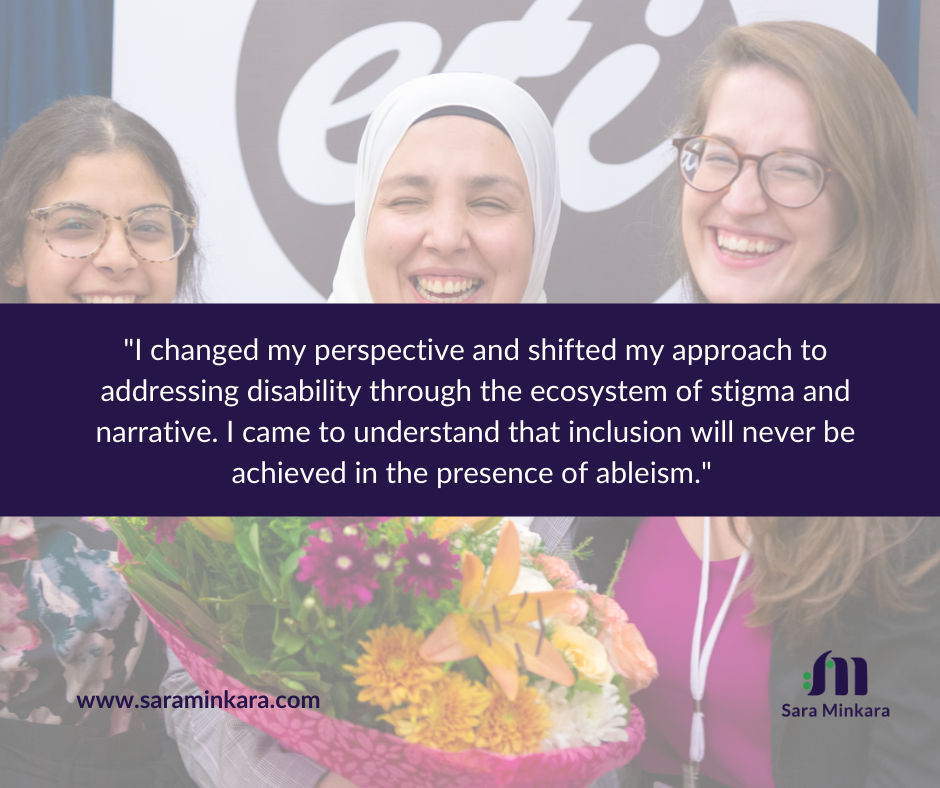The Reality -and the Value- of Building a NonProfit
August 17th marked National Nonprofit Day. As we celebrate the incredible achievements, breadth and promise of nonprofits, I want to also acknowledge the challenging reality of nonprofit culture. Although I am currently running a private company, my roots and my heart are in the nonprofit sector. When we recognize the impactful work nonprofits do internationally, it is also critical to recognize what it takes for them to accomplish that work. I have lived so many of those struggles firsthand, and in my years running a nonprofit heard those same struggles echoed by fellow nonprofit leaders around the world. In addressing the work and those challenges, perhaps we can better value it and alleviate some of the burden.
My nonprofit journey was launched on something of a passionate whim more than ten years ago. My parents are originally from Lebanon, and we take regular family trips to visit relatives and friends there. For years I wanted to do something to support children in Lebanon who, like me, are blind but who unlike me do not have access to services that could propel them toward independence. In 2009 Maysa Mourad and I launched an inclusive summer camp in Tripoli. At the time, I was a college student at Wellesley and spoke to my thesis professor about the project. He said my eyes sparkled when I explained it to him and recommended that I should pursue my passion- disability inclusion. So, I did. I am so grateful today that in my youth, I was comfortable taking such risks, I responded by saying “okay, I’m going to start a nonprofit.”
In 2011, I started Empowerment Through Integration. Although it was technically founded by me, this was very much a collective effort. In its formative years, ETI survived solely on the generosity and goodwill of friends and volunteers. Because of dedicated and passionate people like Sara Chang, Lana Dweik and so many more friends, family and members of my community, I was able to catapult ETI from a dream of mine into a reality for thousands of children. They believed in me and the vision I had. Some people undoubtedly thought I bit off more than I could chew, but they supported me and my idea nonetheless.
ETI’s early success led me to graduate school at Harvard’s Kennedy School. I wanted to learn how to develop a program to create true impact and change. This experience transformed my focus. Initially my approach was very technical: we can provide canes and develop life skills for blind children. I wasn’t really thinking about how to generate change at a systemic level. But through my experience at Harvard, I changed my perspective and shifted my approach to addressing disability through the ecosystem of stigma and narrative. I came to understand that inclusion will never be achieved in the presence of ableism.
By the time I had completed my Masters at the Kennedy School, my approach at ETI was a long-term outlook utilizing intangible products and services, the perfect recipe for donors… said no one ever. Supporters would rather donate a million canes to a million blind children, a fast and tangible solution with clear and immediate impact versus addressing something nebulous, systemic and long-term. This decision posed challenges, but I always believed it was the most effective solution and remained committed to it. ETI retained our mission of being intentional in all things. But that’s a core challenge with nonprofits: donors dictate success in many ways. Nonprofits require funding to survive, which raises questions about their influence over how funds are used, which then impacts adhesion to mission and scale.
I struggled with transitioning from an organization originally comprised of family and friends to a professional association with a board and diverse funders, learning how to lead people who had 30-40 years of experience on me. I learned a lot at ETI, and that experience ultimately empowered me to be the leader I am today. ETI and I shared so much; we were both young and endured many trials and tribulations, but I’m so proud of our impact, because at the end of the day it is all about true systemic change.
So, this is my tribute to nonprofits, through my own story about how ETI came to be and a very brief telling of some of the lessons I learned through that experience. I continue to serve on the board of ETI, and am grateful to do so. Nonprofits are integral to our society, filling service gaps that the private and government sectors can’t or won’t provide. It is helpful to understand more about the challenges in establishing and running them, because we need them more than you may realize. Even a couple of days late, in honor of National Nonprofit Day, consider donating to ETI or your nonprofit of choice.
To learn more visit www.etivision.org and to follow my current journey visit www.saraminkara.com!


